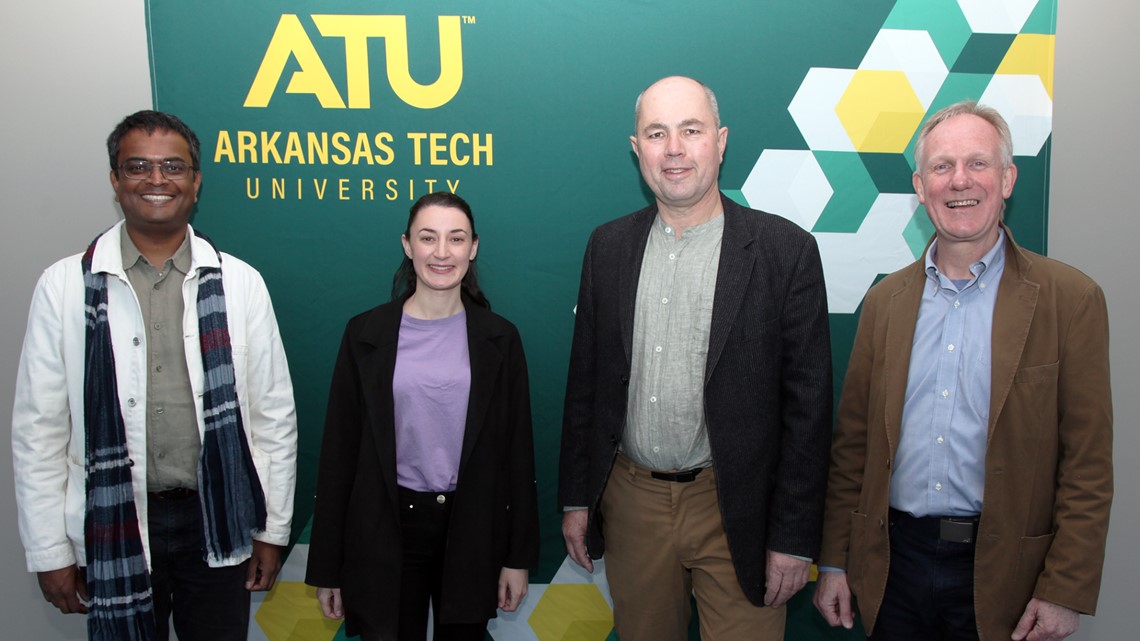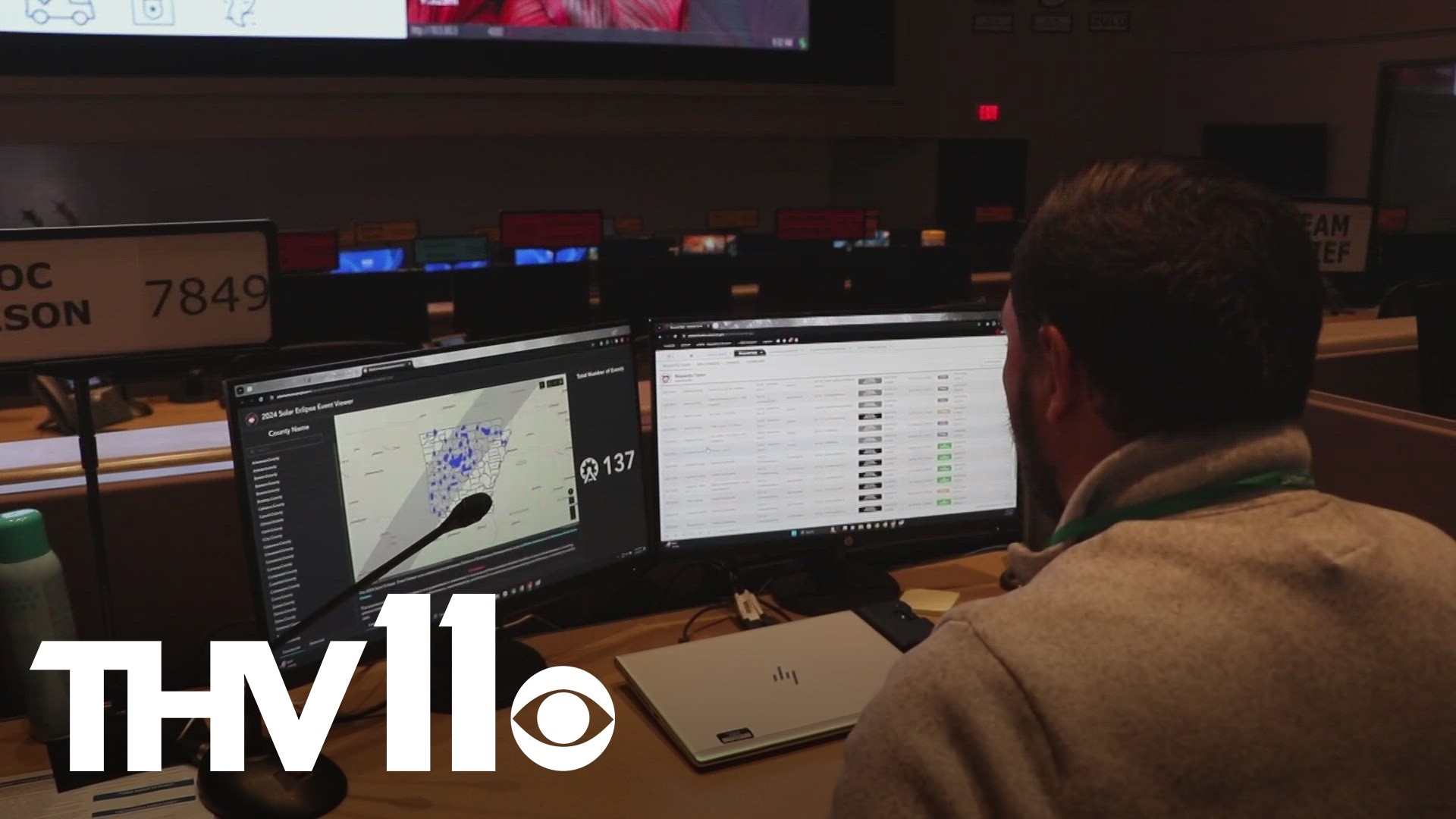RUSSELLVILLE, Ark — Three members of the Paris Observatory delegation have traveled across the world to stay at Arkansas Tech University and view the total solar eclipse in Russellville.
Miguel Montargés, Mathilde Mâlin, and Vincent Coudé du Foresto will be hosted by Philippe Van Houtte, who serves as a systems librarian at Ross Pendergraft Library and Technology Center on the ATU campus.
Coudé du Foresto is an astronomer and director of the Laboratory of Space Studies and Instrumentation in Astrophysics at the Paris Observatory in France, who has had his share of total solar eclipses.
“An eclipse is a moment that puts you in direct connection with the sun and the moon. There is this perfect alignment between the sun, the moon, and yourself. It creates a connection with the cosmos. That is what you feel with the utmost importance at that moment. When a whole group of different people have this same very strong experience…it’s amazing the kinds of bonds it can create,” he described.
He has witnessed nine in total in places all over the world, including Egypt, Spain, Chile, Easter Island, the Chinese-Mongolian border, and even the cockpit of a Concorde jet.
In 2017, he was on the Wyoming-Idaho border for the solar eclipse in the United States.
As Coudé du Foresto prepares to witness his 10th total solar eclipse on Monday, April 8, he shared some advice for first-time eclipse watchers.
“Enjoy it,” he said. “Don’t try to waste your time or energy or concentration into making a picture. Leave it for the pros. You will see lots of very good pictures of the eclipse. Be with the people you want to be with, be in a relaxed setting, and basically be ready to enjoy the show.”
The Paris Observatory delegation is among thousands of tourists expected to visit the Natural State for the 2024 total solar eclipse.
“Eclipses have played a very important role scientifically in the past because they were the only way to see that part of the sun which you usually do not see, which is the corona and the coronasphere,” explained Coudé du Foresto. “What we usually see is the very bright part of the sun, which is called the photosphere. You need to block out the photosphere to see the rest.”



